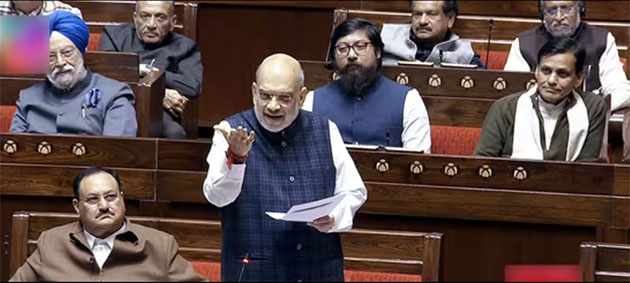India’s stance on Pakistan and the status of Pakistan-occupied Kashmir (PoK) has been consistent and unyielding under the leadership of Prime Minister Narendra Modi and the Bharatiya Janata Party (BJP). This was evident once again during the recent Shanghai Cooperation Organization (SCO) summit. India, represented by External Affairs Minister S. Jaishankar, sent a clear and bold message to Pakistan: there can be no talks unless Pakistan stops sponsoring cross-border terrorism. This unwavering position has reiterated India’s firm commitment to its national security and territorial integrity. In the same forum, India also declined to support China’s ambitious Belt and Road Initiative (BRI), making it clear that Beijing’s economic corridor passing through PoK is unacceptable. While other SCO members, including Russia, Iran, and Central Asian countries, have supported the BRI, India stood firm in opposing it. This rejection of the BRI underscores India’s broader geopolitical concerns and its refusal to compromise on its sovereignty over Jammu and Kashmir, including PoK, which is illegally administered by Pakistan. This stance on PoK is not new. It is part of a larger policy shift initiated by the Modi government, especially after the abrogation of Article 370 and 35A in August 2019. These provisions, which granted special status to Jammu and Kashmir, were removed to fully integrate the region with the rest of India. The move also set the stage for India’s future plans concerning PoK, signalling that the government intends to reclaim the part of Kashmir that Pakistan has controlled since 1947.

Historically, the issue of PoK has been a thorn in India’s side due to the decisions taken by India’s first Prime Minister, Jawaharlal Nehru. When the state of Jammu and Kashmir faced an invasion from Pakistani forces soon after independence, Maharaja Hari Singh, the then-ruler of Jammu and Kashmir, chose to accede to India. However, Nehru’s decision to call for a ceasefire and take the issue to the United Nations left a large part of the state, now PoK, under Pakistani control. This misstep has been heavily criticized by many, including the current BJP government, which sees it as one of the Congress party’s many blunders in dealing with Pakistan. Today, India’s ruling establishment has made it clear that reclaiming PoK is not merely a political slogan but a key agenda item. The BJP government, buoyed by its successes in fulfilling other promises, such as the abrogation of Article 370, seems to be preparing for the next phase of its Kashmir strategy. Prime Minister Modi and his government have repeatedly emphasized that PoK is an integral part of India and must be returned. The rhetoric has only intensified in recent years, with the government declaring its intention to rectify the historical wrongs.
The question that many are now asking is not if, but when, India will move on PoK. While the government has not spelled out the specifics of its plan, it is clear that the issue is high on its agenda. Any move towards reclaiming PoK would have significant regional and international repercussions, but India appears determined to pursue this goal. The BJP’s electoral successes and its assertive foreign policy suggest that this government has the political will to make bold decisions on Kashmir, something previous governments shied away from. Another notable development is the growing discontent within PoK itself. Reports suggest that many people living in PoK are unhappy with Pakistan’s governance and are expressing a desire to join India. This sentiment, if it continues to grow, could provide India with additional leverage in its pursuit of PoK. While the situation remains fluid, the Modi government seems to be playing a long game, waiting for the right opportunity to act. Thus far, India’s current stance on PoK is not just a continuation of its historical claims but part of a larger geopolitical strategy. By refusing to engage with Pakistan unless terrorism ends and by rejecting China’s BRI, India is sending a strong message: it will not compromise on its sovereignty. The abrogation of Article 370 was the first step; reclaiming PoK might just be the next. How and when this happens remains to be seen, but one thing is certain – the Modi government is unlikely to let the issue rest.





